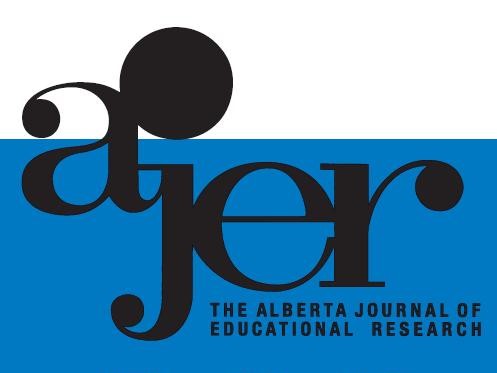Educator Understandings of Wellness: Barriers and Supports in Northern Alberta First Nations Schools
DOI:
https://doi.org/10.55016/ojs/ajer.v69i4.77008Abstract
School communities thrive when educators actively foster wellness. Educators working in First Nations communities conceptualize wellness in unique ways and are active agents in creating opportunities to meet their own wellness needs. This research explores conceptions, supports, and challenges related to wellness from the perspectives of teachers and educational assistants from three First Nation schools in northern Alberta. This qualitative case study includes interviews with 19 educators, and preliminary understandings revealed that educators situate their own wellness within the context of the school and larger community. They prioritize physical wellness and understand that emotional and psychological wellness are also often important. Finally, factors such as isolation, land, access, distance, and cost are seen as barriers to wellness by many. These same factors also represent opportunities to engage in wellness in ways that are less accessible to educators working and living in urban centers. We conclude that attention must be paid to the unique educator wellness needs in First Nations community schools as wellness-promoting initiatives are explored.
Keywords: wellness, Indigenous education, educator wellness, northern, First Nations
Les communautés scolaires s'épanouissent lorsque les éducateurs favorisent activement le bienêtre. Les éducateurs travaillant dans les communautés des Premières nations conceptualisent le bienêtre de façon unique et sont des agents actifs dans la création d'occasions pour répondre à leurs propres besoins en matière de bienêtre. Cette recherche explore les conceptions, les soutiens et les défis liés au bienêtre du point de vue des enseignants et des assistants pédagogiques de trois écoles des Premières nations du nord de l'Alberta. Cette étude de cas qualitative comprend des entrevues avec 19 éducateurs, et les résultats préliminaires révèlent que les éducateurs situent leur propre bienêtre dans le contexte de l'école et de la communauté dans son ensemble. Ils accordent la priorité au bienêtre physique et comprennent que le bienêtre émotionnel et le bienêtre psychologique sont aussi souvent importants. Enfin, des facteurs tels que l'isolement, le territoire, l'accès, la distance et le coût sont considérés par beaucoup comme des obstacles au bienêtre. Ces mêmes facteurs représentent également des occasions de s'engager dans le bienêtre d'une manière qui est moins accessible aux éducateurs travaillant et vivant dans les centres urbains. Nous concluons qu'il faut prêter attention aux besoins uniques des éducateurs en matière de bienêtre dans les écoles communautaires des Premières nations lors de l’exploration d’initiatives de promotion du bienêtre.
Mots clés : bienêtre, éducation autochtone, bien-être des éducateurs, du Nord, Premières nations
Downloads
Published
Issue
Section
License
UNIVERSITY OF ALBERTA COPYRIGHT LICENSE AND PUBLICATION AGREEMENT
If accepted, authors will be asked to sign a copyright agreement with the following points:
A. Where there is any inconsistency between this Copyright License and Publication Agreement and any other document or agreement in relation to the same subject matter, the terms of this Agreement shall govern.
B. This document sets out the rights you are granting in relation to publication of your article, book review, or research note entitled (the “Article”) through inclusion in the academic journal titled Alberta Journal of Educational Research (the “Journal”) published through the Faculty of Education, representing the Governors of the University of Alberta (the “Journal Editor”).
C. There will be no payment to you for this publication and grant of rights. In consideration of the agreement to publish the Article in the Journal:
1. You are warranting that:
- the content of the Article is your original work, and its content does not contain any material infringing the copyright of others; or, where the Article is not entirely your original work, you have obtained all necessary permissions in writing to grant the rights you are giving in this agreement;
- the content of the Article does not contain any material that is defamatory of, or violates the privacy rights of, or discloses the confidential information of, any other person;
- the Article has not been published elsewhere in whole or in part, and you will not allow publication of the Article elsewhere without the consent of the Journal Editor;
- the names of all co-authors and contributors to the Article are:
2. You agree to license the copyright in the Article to the Journal Editor, on a worldwide, perpetual, royalty free basis; and to the extent required by the terms of this agreement. You shall retain the right at all times to be acknowledged as the/an author of the Article.
3. You further agree that the Journal Editor has the entitlement to deal with the Article as the Journal Editor sees fit, and including in the following manner;
- The right to print, publish, market, communicate and distribute the Article and the Journal, in this and any subsequent editions, in all media (including electronic media), in all languages, and in all territories, ing the full term of copyright, and including any form of the Article separated from the Journal, such as in a database, abstract, offprint, translation or otherwise, and to authorize third parties to do so;
- The right to register copyright of the Journal;
- The right to edit the Article, to conform to editorial policy as the Journal Editor sees fit.
4. If any co-author or contributor to the Article does not sign this agreement, the Journal Editor reserves the right to refuse to publish the Article.



